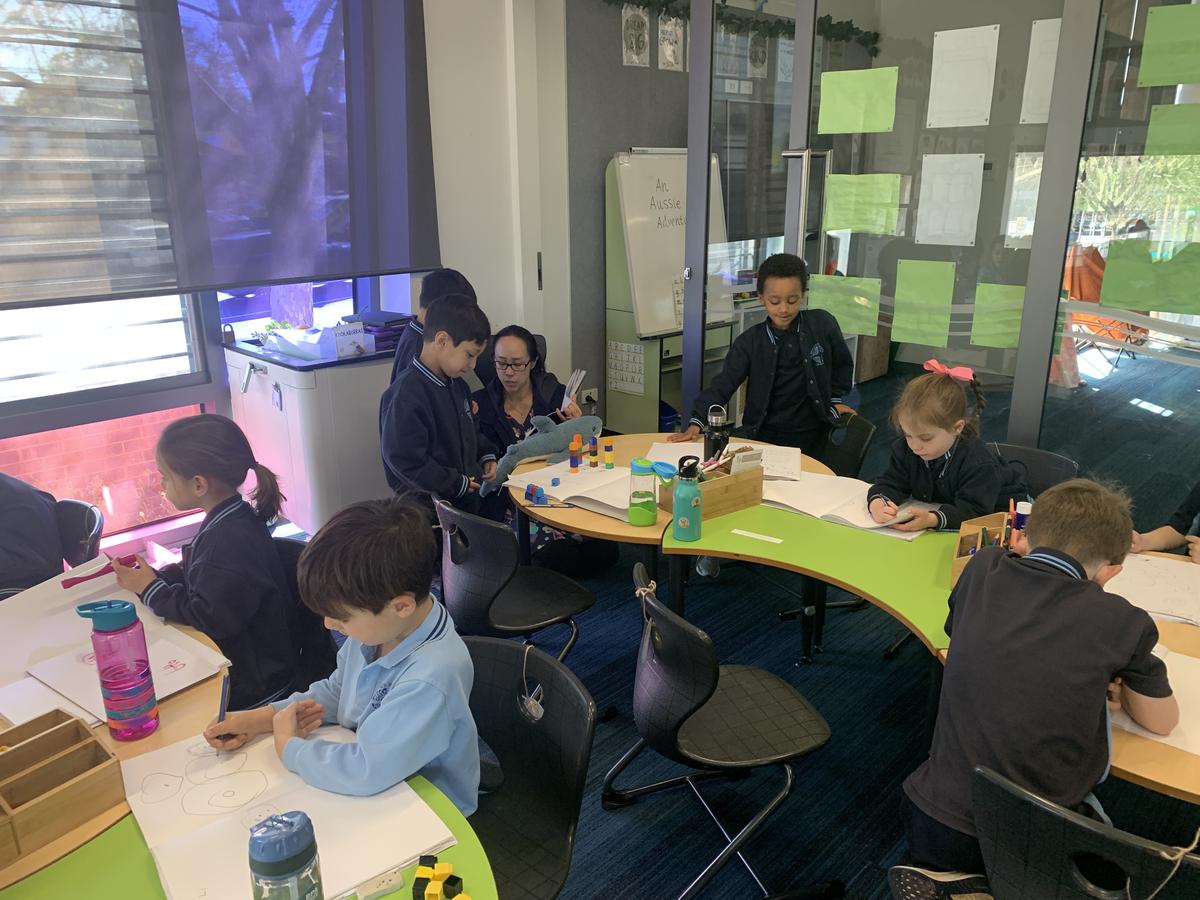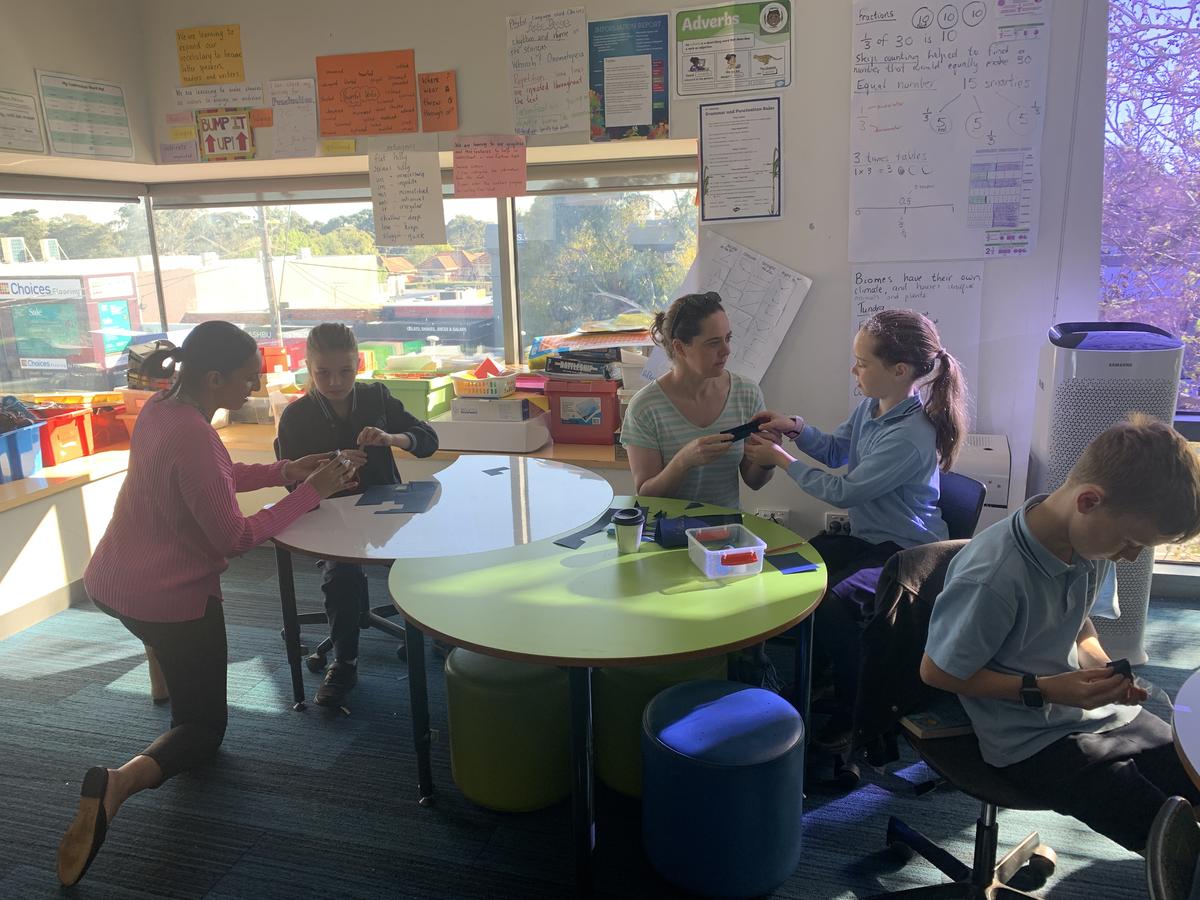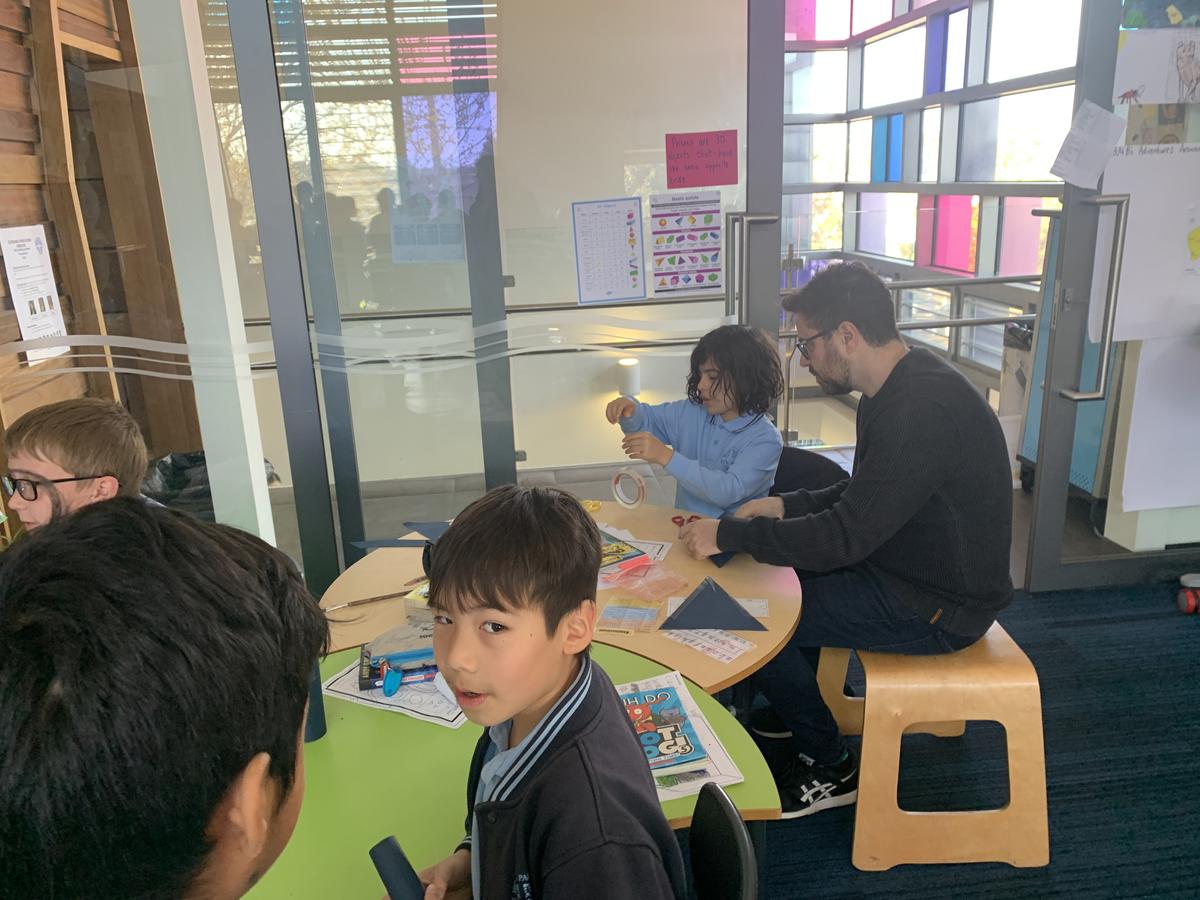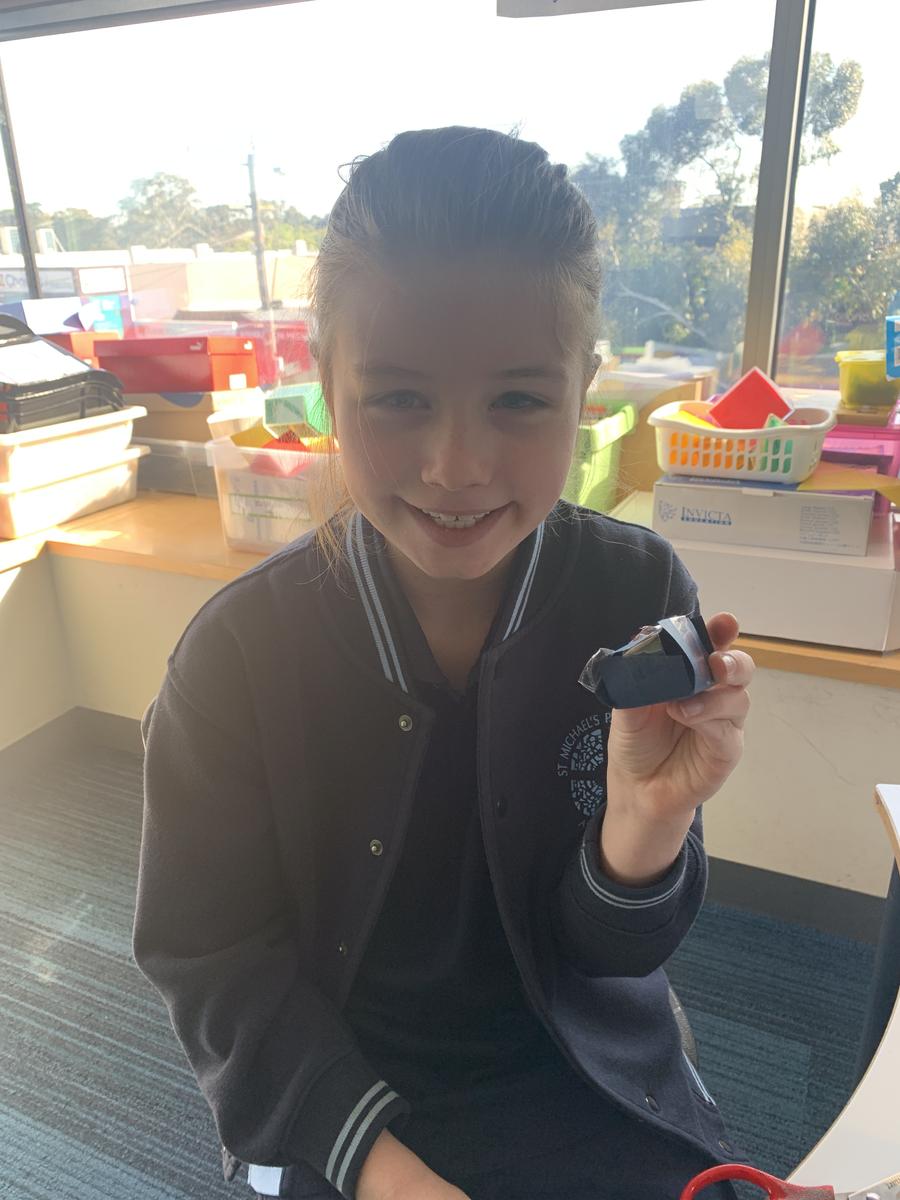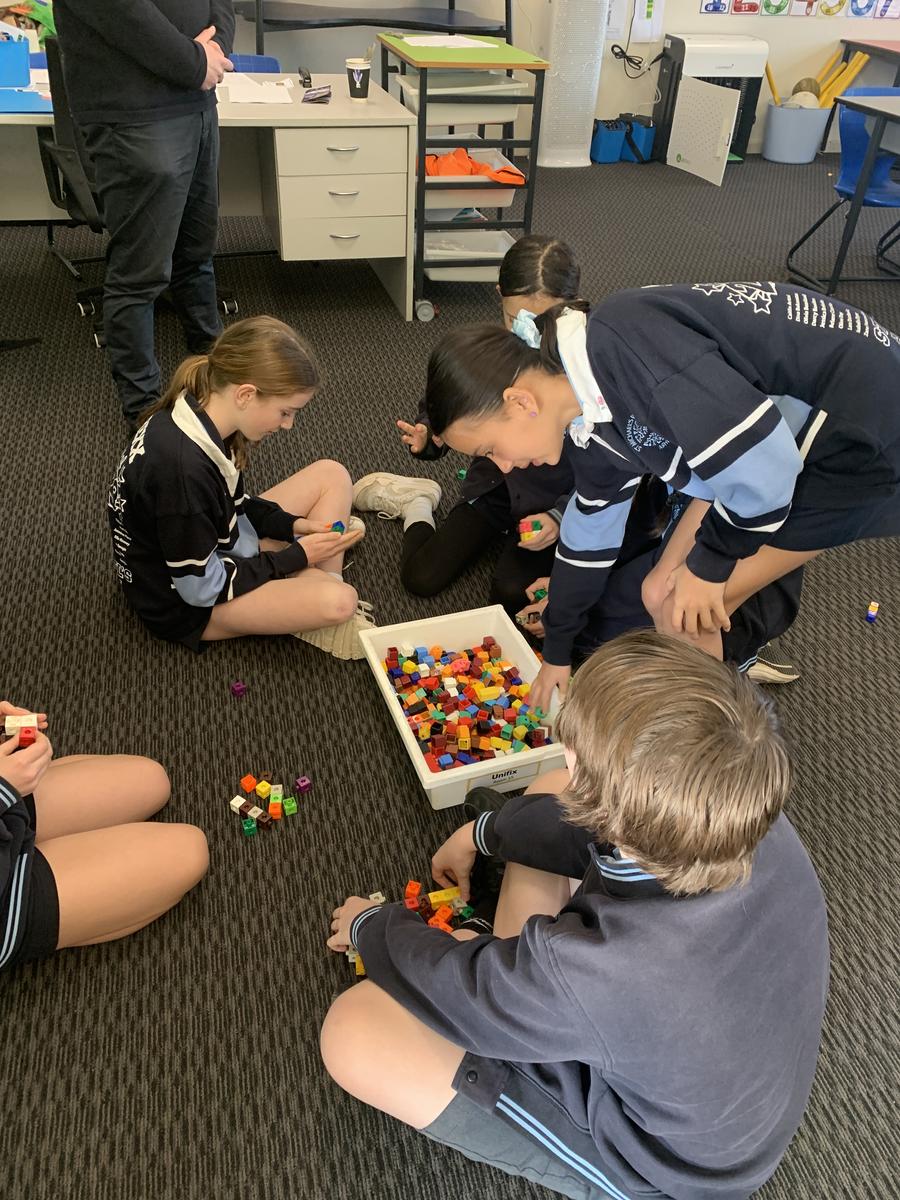In the Kitchen There are several mathematical activities that take place in the kitchen, including preparing food, measuring ingredients, estimating cooking times, plating dishes and setting the table. - Estimate then count the number of cups needed to fill a large pot
- Use a timer when preparing food or monitoring cooking times
- How long does it take to make the perfect cup of tea?
- Give directions to help your child set the table or plate food
- Investigate the different shapes of objects and food items in the house
- Can you find any items that do not belong? (non-example) Can you describe why they are different?
- Order containers from smallest to tallest or lightest to heaviest
- Think about the different shapes we can make when we cut vegetables
- How do these shapes and sizes effect cooking times?
- Can you measure half a cup using a ⅓ of a cup measure? In the Bathroom The bathroom is another great place to find maths activities, including comparing capacity and ordering objects.
- Use the bath or large tub to investigate whether objects sink or float
- Make a boat using paper and time how long it stays afloat
- What if you add weights (or blocks)? Does it still float?
- Fill containers with water to find out which one has the largest capacity
- Compare the height or weight of containers
- Order the containers according to their size
- What if I give you one more container? Where would you place it? Why?
| Outside You do not need to be in the house to find great maths activities. Often good activities are just outside your front door. - Go for a number walk in your local area – look for numbers on street signs, house numbers and shop fronts
- If you see a number, think about: What number comes before or after? What is ten more or less than the number? What else do you know about the number?
- Go to a local park – use location words to describe the position of the different objects
- Create your own obstacle course and follow the directions given to you by someone else
- Use a timer to see how long it takes you to complete the course
- Hide an object and give someone directions to find it
- Draw a map to the local shops or park
- Count the number of steps to arrive at a favourite location – if the distance is too far consider using a phone app or fitness tracker
- Be the first person to find an object (or objects) that shows a certain number or characteristic, for example, find 5 leaves, find something that is blue, find something that would fit inside a matchbox, find something hard, find something that could be used to collect water, etc.
- Can you find something that does not fit any of the categories? (a non-example) What makes it different?
- Buy some large chalk and use it to create your own maths challenges, pathways or games
- Create a pattern with the chalk and have someone explain and continue it
- Check who can do the longest standing jump or jump with a run up or the highest jump
- Take some sporting equipment outside – investigate how far can you kick a ball, throw a ball, hit a ball with a bat or throw a frisbee
| Other Rooms The other rooms in your house, including the garage or garden shed, may also contain interesting items that could be the starting point for an investigation. - Hide an object and give someone else directions to locate it
- Find a measuring tape and use it to predict then measure the size of different objects or distances
- Sort a collection of objects according to their colour, shape or size
- Use materials, such as books or newspaper, to build the tallest tower or the strongest bridge
- Count the number of stairs or the number of steps it takes to get to different rooms
- Create a map of your house or draw a map of your dream house
- Find all the shoes in the house – sort them according to size or colour
| In the Bathroom The bathroom is another great place to find maths activities, including comparing capacity and ordering objects. - Use the bath or large tub to investigate whether objects sink or float
- Make a boat using paper and time how long it stays afloat
- What if you add weights (or blocks)? Does it still float?
- Fill containers with water to find out which one has the largest capacity
- Compare the height or weight of containers
- Order the containers according to their size
- What if I give you one more container? Where would you place it? Why?
|

